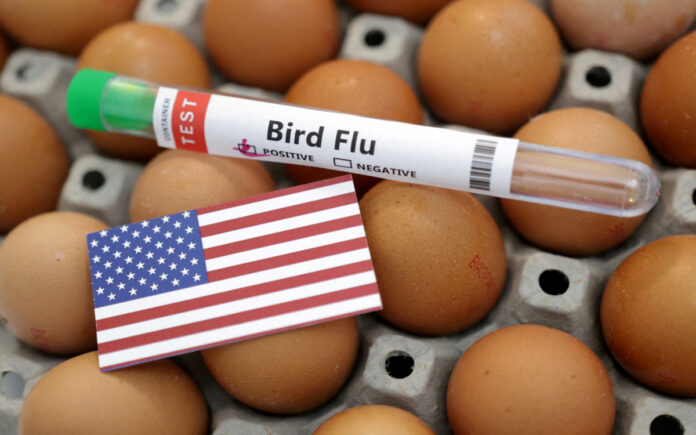Lansing: US officials reported a third case of bird flu infection among dairy workers, marking the first instance of respiratory symptoms in Michigan. This case underscores the escalating concern as Michigan prepares to expand testing efforts amidst the ongoing outbreak.
Michigan, which has recorded more bird flu cases in dairy cattle than any other state, saw its second human case with symptoms extending beyond conjunctivitis (pink eye) experienced by previous patients.
The U.S. Centers for Disease Control and Prevention (CDC) maintains that bird flu remains a low risk to the general public, with no evidence of human-to-human transmission.
Dr. Nirav Shah, principal deputy director of the CDC, explained during a media briefing that respiratory symptoms increase the likelihood of virus transmission compared to eye symptoms, aligning with past influenza patterns.
Meanwhile, Michigan plans to initiate testing of dairy farm workers for prior avian flu exposure, aiming to understand the outbreak’s extent and potential human carriers. State and local health authorities continue monitoring symptomatic individuals.
Since March, the avian flu outbreak has impacted 67 herds across nine states, according to CDC data.
The third infected worker displayed upper respiratory tract symptoms and eye discomfort, receiving antiviral treatment while isolating at home. Household contacts are under monitoring but remain symptom-free.
This case differs from the May 22 report in Michigan and the April 1 case in Texas, suggesting independent incidences, stated the CDC.
Also Read | Waterborne Diseases Threaten Flood-Ravaged Southern Brazil
Dr. Amesh Adalja, an infectious disease expert, emphasized the mild nature of the case, highlighting the occupational risk faced by dairy farm workers.
CDC’s efforts to test farm workers aim to gauge prior exposure and virus transmission dynamics. Michigan’s collaboration with the CDC will shed light on infection patterns and farm-related risk factors.
Testing for prior infection aids in assessing virus prevalence among humans, crucial for understanding potential mutations and transmissibility, noted Michael Osterholm, a bird flu expert.
Manufacture of 4.8 million bird flu vaccine doses will conclude this summer, announced David Boucher from the U.S. Department of Health and Human Services. Additionally, the USDA launches a pilot program for bulk testing dairy cow milk for bird flu and allocates $824 million for testing and surveillance efforts.



